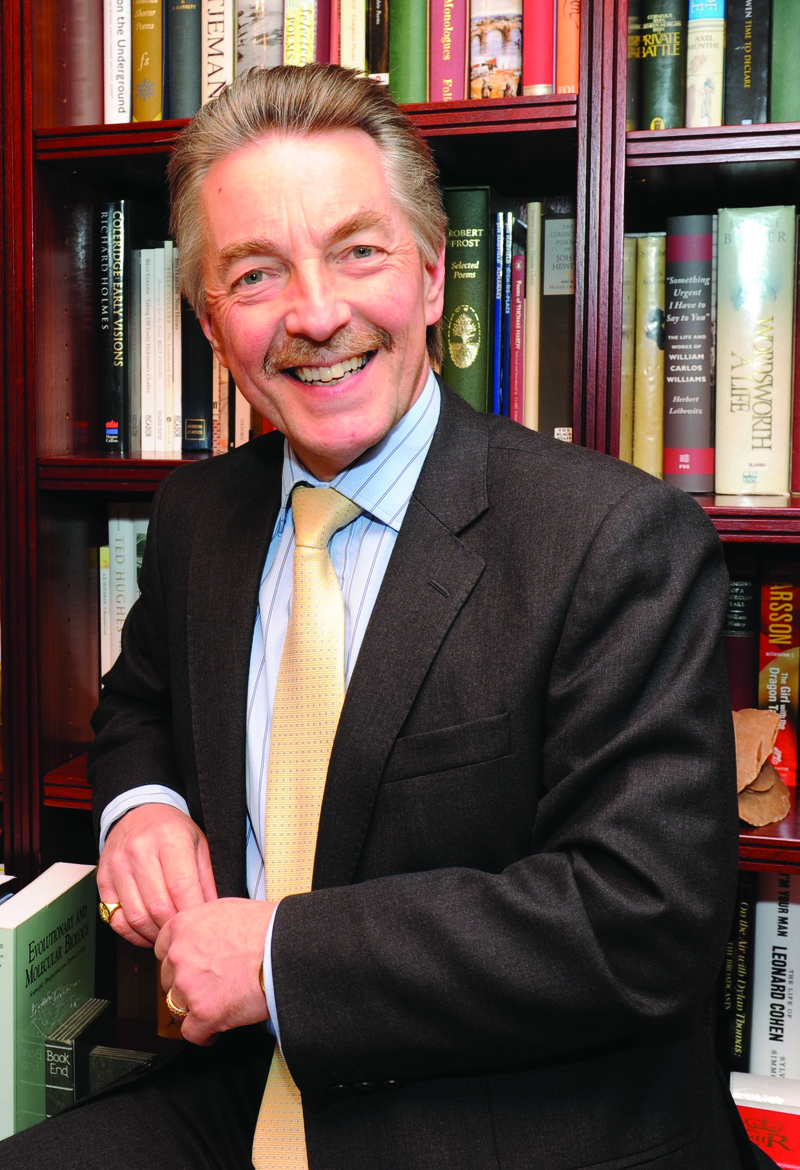Community Healthcare Chaplaincy
18 March 2021
18 March 2021
As a GP, the Medical Director for NHS North Lincolnshire Clinical Commissioning Group, and an ordinand with the Church of England, Dr Robert M Jaggs-Fowler has a vision for chaplains in GP surgeries.
 The idea of providing chaplaincy volunteers to GP surgeries started back in 2012 as one of those light-bulb moments – the fusion of thirty or so years of experience as a general medical practitioner and my acceptance on a Spirituality, Theology and Health MA course at Durham University. As part of that course, I read Medicine, Religion and Health: Where Science and Spirituality Meet by Harold Koenig, which was packed with fascinating and scientifically supported evidence for the positive impact of religious practice on health.
The idea of providing chaplaincy volunteers to GP surgeries started back in 2012 as one of those light-bulb moments – the fusion of thirty or so years of experience as a general medical practitioner and my acceptance on a Spirituality, Theology and Health MA course at Durham University. As part of that course, I read Medicine, Religion and Health: Where Science and Spirituality Meet by Harold Koenig, which was packed with fascinating and scientifically supported evidence for the positive impact of religious practice on health.
The problem was, how could a GP make use of such data without falling foul of the medical profession’s regulators?
Over the previous decade there had been several high-profile news stories of doctors disciplined by the General Medical Council for bringing matters of faith into the consulting room. Yet the Royal College of General Practitioners’ core curriculum of 2010 stated that “a General Practitioner should adopt a holistic approach” and that this included “the ability to understand and respect the values, culture, family structure and beliefs of your patients”.
Quandaries
What, then, was a GP to do when confronted by one of the myriad of quandaries that interfaced with a patient’s faith? Quandaries such as a teenage Roman Catholic girl with an unplanned pregnancy? A Muslim girl presenting with anxiety and depression because she has a white, Anglo-Saxon boyfriend? A member of an evangelical church, who is suicidal because of financial mistakes that mean he will go to hell because the Bible says so? The widowed, church-attending lady who is fearful that her late husband is still present at night and wishes to move on with her life? That is not forgetting all the routine holistic issues around end-of-life care, bereavement and so on. To me the answer was obvious. Hospitals and hospices have had chaplaincy services since the start of the NHS in 1946. What we needed were chaplains in GP surgeries.
Proof of concept
The Bishop of Lincoln agreed that I could run a pilot scheme in North Lincolnshire which, if successful, could be rolled out across the whole of the diocese. He put me in touch with the ecumenical organisation Lincolnshire Chaplaincy Services (LCS). The LCS director, the Revd Canon Andrew Vaughan, was enthused, though uncertain as to how the idea would be funded. “If this is right, then God will provide” was my response.
Thus, through LCS, the first training course for chaplaincy volunteers was conducted in 2015, out of which we gained our first three chaplaincy volunteers. The year 2016 saw a second training course and approval for three further chaplaincy volunteers, two of whom are currently placed in two GP Practices in North Lincolnshire.
Movement and growth
The stories of how our chaplaincy volunteers in North Lincolnshire have engaged with patients and practice staff are enormously encouraging, not only to the practices, which have seen the value of their services, but also for the significant assistance many patients and staff have received. This has formed the launch pad of the next stage of development.
2017 saw tremendous movement. With the closure of LCS, the project was offered the protective umbrella of the Lincolnshire Methodist District, thus securing the ability to perform Disclosure and Barring Service checks and to provide legal indemnity to our chaplaincy volunteers. For this, we are immensely grateful to the foresight of the Chair of the Methodist District, the Revd Bruce Thompson, along with the subsequent agreement of the Lincolnshire Methodist Synod.
We are also fortunate to have the continuity and expertise of Alison McNish (PA to the Methodist District Chair) in providing administrative support. As Bruce summarises: “In the Lincolnshire District we have now fully embraced Community Healthcare Chaplaincy as a strong and effective ecumenical initiative.”
At the same time, the Bishops of Grimsby and Grantham gave their blessing to the project and as a result we have received significant assistance in formulating a new training programme for our healthcare chaplaincy volunteers. NHS England has come on board, and is providing support to roll out the project into the rest of Lincolnshire, possibly to take the idea to a national level after next year’s pilot. Finally, a new steering group consists of health, theological and legal expertise, to provide a firm governance structure.
Fresh air and enthusiasm
With sixteen candidates enrolled on the training course that commenced in September 2017, and discussions taking place with interested GP practices from ‘the Humber to the Wash’, the initial light- bulb vision is taking on a life of its own. Run largely on fresh air, goodwill and the enthusiasm of many ecumenical partners, the Lincolnshire pilot could well be the basis of a transformative change in the history of the NHS, thereby proving that, if an idea is driven by the power of the Holy Spirit, God really does provide.
This article originally appeared in the connexion magazine, issue 10.
Photo of Dr Robert M Jaggs-Fowler: © Dr Robert M Jaggs-Fowler, TMCP